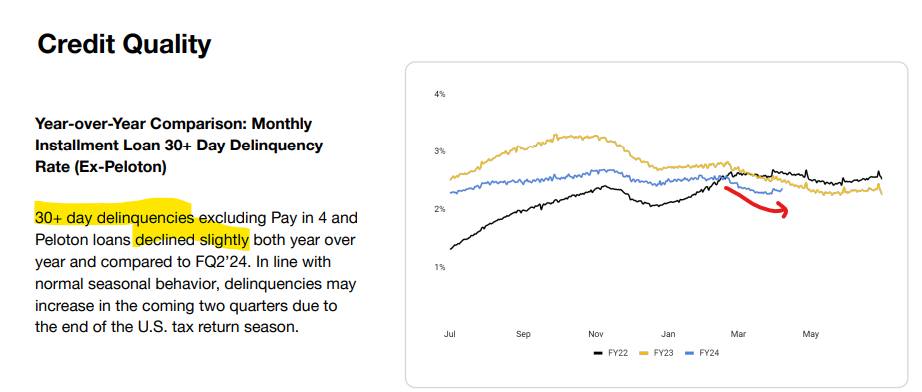
Gritty Versus Grifty Founders and Code as Craft
Call ur mom!!
May 12, 2024 · Updated January 30, 2026
Happy Sunday! And happy Mother’s Day in the U.S. For those of you who have given birth to babies, we hope you get flowers. To those who have given birth to startups, we hope for high equity markups.
Now, on to everything we published this week, along with our take on the latest tech and business news.
Was this newsletter forwarded to you? Sign up to get it in your inbox.
Our stories
"The Death of Code as Craft" by Jon Christensen: Coding is fun because you feel like an artist, constructing objects out of digital bits. Will AI make coders irrelevant factory-line labor? Read Jon's piece to see if coding is changing from an art form to something weirder, maybe easier, and more strategic.
"The Right Kind of Asshole" by Evan Armstrong/Napkin Math: Our tech ecosystem is overrun with grifters who take capital from worthy founders. The challenge is that the signals of greatness are similar to those of being terrible. Read this for the five signs of grit and five signs of grift in founders.
"Patreon Should Buy Substack to Save Creators" by Evan Armstrong/Napkin Math: Every media company you know is panicking—traffic is declining, ad revenue is sagging, and creators are stuck in the middle. The solution? Patreon should raise a bunch of cash and buy Substack. Read this if you want to see how a combined "Patrestack" could reshape the creator economy, deliver better economics to creators, and maybe even make the internet a bit less awful for all of us.
"ChatGPT and the Future of the Human Mind" by Dan Shipper/Chain of Thought: As AI encroaches on what we've long considered uniquely human—our intellect—it's normal to feel both excited and threatened. But by understanding what AI tools like ChatGPT actually do (like summarize information), we can redefine what makes us human and find a new sense of purpose in the creative process. Read this to learn how technology has been changing our brains for generations, and how we can use AI to create more richness and beauty in the world. 🖥 Watch it as a video essay on YouTube or Spotify, or listen to it on Apple Podcasts.
🎉 "Brandon Gell Joins Every as Our First Entrepreneur in Residence" by Dan Shipper and Brandon Gell: We have some exciting news! Brandon Gell, the former CEO of Clyde, a fintech startup that raised $50 million before being acquired, is joining us as our first entrepreneur in residence. Together, we'll be incubating new software and services that will be bundled into Every subscriptions. Read this to learn more about our vision for the future of Every.
The backchannel
Evan’s dissection of the characteristics of grit versus grift in founders generated a robust discussion:
“You highlight fair evidence, but there is something missing from this formula. Getting people to join you in building that bold idea, and staying for the journey, is an often missing consideration among Valley folk. It’s not a sexy thing to talk about—you cannot brag about it at a board meeting or boast about it with your LPs. It is inward, viscous, nuanced, and requires superhuman endurance…I wonder what would happen if we had more women running companies.” —Health tech founder
“Effective leadership isn’t about being tough so much as it’s about knowing how to inspire your team and get[ting] them to buy into your company’s vision.” —B2B marketer
Dan’s video essay about ChatGPT’s impact on our intellect sparked a creative response:
“It’s insanely good, like if Terry Gross had a baby with Charlie Rose and that baby lived with a Tibetan monk for 10 years but then they had a climactic fight on the Annapurna and the monk said before falling down the cliff ‘I am your real Father. Terry and I were lovers’ so the boy ran down the trail in tears and at the bottom he discovered a cake and coffee shop where he was handed an iPhone and then said ‘Let’s see what this does,’ then started a podcast…” —A playwright.
Want to chat? DM Dan or Evan on X.
Chain of links
OpenAI [baguette edition] raises more capital. French AI company Mistral is rumored to be raising $600 million at a $6 billion valuation, nearly tripling its valuation in six months. I don’t know how to interpret these rounds—either its investors see value in EU-specific models or think that Meta will stop releasing open-source models. If you are putting capital in this round, contact us! We would love to publish a bull thesis on this deal.
Legalize the AI drugs. Google DeepMind (its AI division) released Alpha Fold 3, an AI model that can “accurately predict the structure of proteins, DNA, RNA, ligands and more, and how they interact.” The executive in charge predicted it could be a $100 billion division in the next couple of years. This is a genuine scientific marvel, and if I had a nickel for every time an executive said their project would be huge, I would drive a Maserati.
Searching for revenue. OpenAI is rumored to be releasing a search engine to compete with Google on Monday. We know that models can do this—the key questions are about the user interface and execution. How will OpenAI feature publishers? How will ads be sold and displayed? Who knows if this effort will work, but OpenAI sets the design paradigm that other AI companies follow.
AI did a naughty copy. Let it be known that we don’t think LLMs only fart rainbows—they can be used for ill, too. This investigation into a company called AdVon discovered that many major publishers, brands like USA Today and Sports illustrated, were publishing AI-created drivel while passing it off as being written by real humans. Then, to their horror, the journalists doing the investigation learned their parent company is also a client. An absolutely cracking read filled with drama, lies, and fraud. One of our favorites of the week. Read it! —Evan Armstrong
The napkin math
50,000 paid robotaxi rides. Always ignored, forever discounted, 10 years into the journey, Waymo robotaxis are now working at scale. If this continues, Google has deployed a technology that will save tens of thousands of lives and reduce our reliance on cars. Note: Both Dan and I noted that the technology was working months ago. A reminder that reading Every lets you know the future first.
The Apple pencil does a barrel roll. The cyberpunk Granny Smith released some new iPad stuff this week. It was all a forgettable spec bump. As one of our designers, Keshav, put it, “Highlight—apple pencil can now do a barrel roll.” Translation: The pen can track if you turn it on its side. The company unveiled a new chip—the M4—that appears to have latent capacity meant for AI applications. Whether or not that is meaningful depends on whether WWDC will include major AI announcements.
Google’s sniffing around a $30 billion enterprise SaaS acquisition. HubSpot produces a combination marketing, sales, and operations software (boring). Basically, it has many customers who have lots of data, atop of which the software performs repetitive tasks. If you pair that with Google’s distribution and, more importantly, its AI capabilities, you have a legitimate shot at taking over the enterprise SaaS market, which has historically been the realm of Microsoft. I kind of like this deal.
85 percent of U.S. teens play video games, 42 percent daily. According to a survey from Pew Research, teens are very, very plugged in. I don’t think this is necessarily good or evil, but it is different. The critical issue is whether they are playing games that are borderline casino, money-sucking dopamine fests—Candy Crush or loot box mechanics, for example—or if they are spending enriching time with their friends. Our relationship with our devices will be the defining issue of the next generation.
We called it on Pinterest. About 18 months ago, I published a bull call on Pinterest, predicting that the company was on the verge of fixing its problems. I was very right: The stock is up about 80 percent since I published. Another reminder of why you bother to read us (wink). —EA
For the love of charts
The journo hivemind is worried about BNPL. This week, two major publications did much hand-wringing over the growth of credit card debt and the impact of buy now, pay later (BNPL). Consumers who traditionally didn’t use that much credit—whether Gen Z or lower-income people—are using more of it lately. Both articles infer that this trend is bad and predatory, and doom is nigh. Did you hear? BNPL doesn’t even report credit data to the major credit bureaus (for free, so that those credit bureaus can sell credit reports). Oh, the horror.
Putting aside that there was no new data in either piece, there is, of course, another way of describing “extending credit to people who traditionally did not use that much of it.” It’s called “credit inclusion.” Indeed, part of the explicit promise of BNPL is to bring lending to parts of the economy where it previously did not go, including to—you guessed it—Gen Z and low-income borrowers. Is that inclusive or predatory? In the damned-if-you-do-damned-if-you-don’t-style of tech journalism, it will be predatory if the loans blow up, and it will be insufficiently inclusive if underwriting is too prudent. In the real world, however, it’s going pretty well, at least for Affirm. Credit quality for Affirm’s BNPL business is improving:
Source: Affirm Shareholder Letter.
Delinquency rates are trending lower than the previous two years. Could it get worse? Sure. Is BNPL a black box? Yes. But for now, the data shows that it’s techno-optimism for the win. —Moses Sternstein
The examined life
Hello, open road: I've been reading Jack Kerouac's On the Road, a classic coming-of-age story about a group of friends traveling through America in the 1940s. It has a "go, go, go" energy that makes me want to get on the first flight to Chicago and start hitchhiking my way west. The book’s sense of adventure is infectious because Kerouac's characters have no expectation about the end journey. There’s no map, so they live spontaneously and free. When you’re creating anything new, you have to trust your instincts and jump, even if you don’t have everything figured out. Just pray you’ll land on a bed of soft feathers. —Ash Sharma
More great reads
Taste > skill. In a world where AI models can generate dozens of beautiful creations in less than a minute, taste will take on ever greater importance. But how do we cultivate it? Explore the approaches shared by Steve Jobs, Anna Wintour, and Rick Rubin.
Master your attention with tactical mindfulness
It’s the last weekend to register for The Hidden Discipline, an eight-week mindfulness course taught by founder-coach and Every columnist Casey Rosengren that starts on May 15. Every subscribers can save 20 percent and enroll now for just $799. Through live sessions, daily practice, and expert guidance, you'll gain the tools to power through challenges, handle stress with ease, fully savor life's best moments, and be more present and effective in every area of your life.
Eye candy
What if MacBooks were modular? An exploration:
Source: X/Lucas Crespo.
That’s all for this week! Thanks for reading, and be sure to follow Every on X at @every and on LinkedIn.
The Only Subscription
You Need to
Stay at the
Edge of AI
The essential toolkit for those shaping the future
"This might be the best value you
can get from an AI subscription."
- Jay S.
Join 100,000+ leaders, builders, and innovators

Email address
Already have an account? Sign in
What is included in a subscription?
Daily insights from AI pioneers + early access to powerful AI tools








Comments
Don't have an account? Sign up!